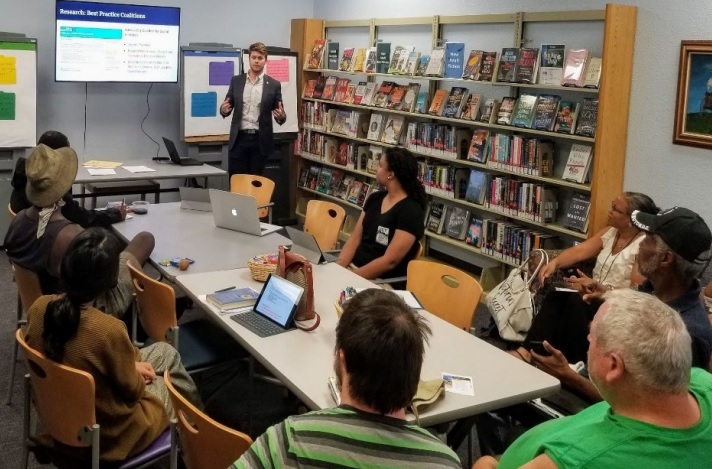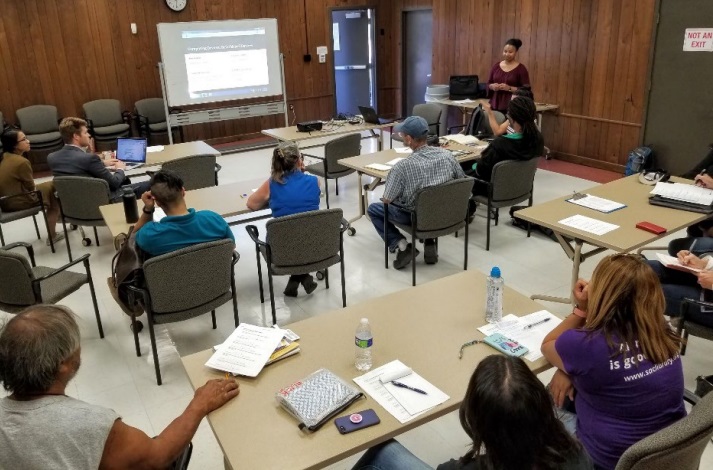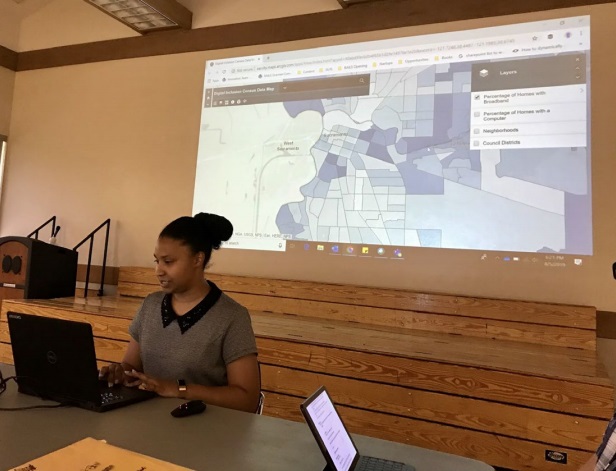Digital inequity disrupts one’s social, economic, and democratic life
These instances, drawn from our workshops, illustrate how skills, hardware, and connectivity inequities create digital divisions in the lives of Sacramento community members.
A woman at the North Sacramento workshop has been trying to learn Photoshop and photo editing skills. She wants to do digital photography, but has not had the correct learning opportunity. A staff member with Sacramento Employment Training Agency repeatedly stresses to her clients that résumés created on a smartphone are often inferior to those composed on a full PC. A resident of the Delta continues to run, to his dissatisfaction, his work email from an @frontier.com email address because he cannot figure out how to migrate his email from one service to another.
These instances, drawn from our workshops, illustrate how skills, hardware, and connectivity inequities create digital divisions in the lives of Sacramento community members. The recommended actions proposed in this report seek to address issues like the ones described above, in an inclusive and comprehensive fashion.
There are digital equity deserts in Sacramento County
True solutions to the issues of digital equity deserts consider the logistics of not only a particular geographic region, but also historical factors related to the particular populations that live in a given region.
A person experiencing homelessness in the Del Paso Heights area has his own phone and computer, but he is offline after 9 p.m. because the batteries for all his devices are dead by the late evening. A resident of the Delta is confounded how rural regions of Alaska have better connectivity than he does, so close to the most technologically advanced state’s capital. Children in the Oak Park area spend hundreds of hours online at the local library because that is where the connection to the internet, and therefore the rest of the world, is available to them. Nearly 25 percent of students at Sacramento City College are using mobile devices for homework.
Digital equity deserts exist within Sacramento County. They can be caused by issues like lack of power, lack of internet access or lack of meaningful scaffolds to skills, as described by workshop participants. These deserts are in some cases defined by geographic issues, and in others, follow a person around regardless of their location. True solutions to the issues of digital equity deserts consider the logistics of not only a particular geographic region, but also historical factors related to the particular populations that live in a given region.
Digital skills are critical thinking skills
The SCDI’s recommendations and the opportunities those recommendations create aim at bridging the digital divide, but also work to create meaningful learning and critical thinking opportunities for residents of our region.
A workshop participant said that his Hispanic parents have a cultural preference to physically working hard and learning traditional academic skills over digital learning. A digital skill instructor highlighted how learning digital skills are foundational to any professional task. A North Sacramento resident said that without proper motivation insight, youths will not engage with any skill learning.
Digital Skills, and the learning opportunities they create, translate to all facets of life. The SCDI’s recommendations and the opportunities those recommendations create aim at bridging the digital divide, but also work to create meaningful learning and critical thinking opportunities for residents of our region. Critical thinking — analyzing information, combining disparate pieces of information to develop conclusions, and breaking complex tasks down into discrete actions — is a digital skill. Activities that teach digital skills also teach this larger life, and employability, skill of critical thinking.


